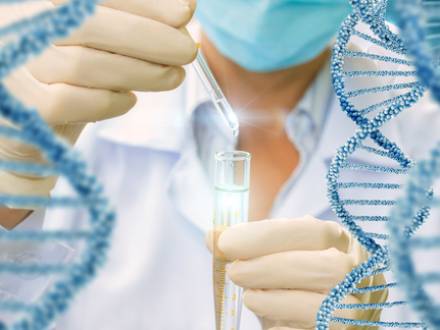How Can DNA Evidence Impact My Criminal Case?
 DNA evidence is often considered irrefutable proof of allegations in criminal cases. It has been instrumental in solving many crimes and securing convictions, as well as exonerating people who were wrongfully convicted. However, DNA evidence is not always the most accurate proof that something happened.
DNA evidence is often considered irrefutable proof of allegations in criminal cases. It has been instrumental in solving many crimes and securing convictions, as well as exonerating people who were wrongfully convicted. However, DNA evidence is not always the most accurate proof that something happened.
There are several key factors to consider, including how DNA is used in criminal cases, challenges defense attorneys may face, and common misconceptions about its reliability. To learn more about how DNA evidence might affect you, speak with an experienced San Antonio, TX criminal defense lawyer.
How is DNA Used in Criminal Defense?
DNA evidence can play a powerful role in Texas criminal defense cases. It can be used in various ways to help convict or defend someone.
-
Exoneration: Since the 1990s, DNA testing has been used to free people who were wrongly imprisoned for crimes they did not commit. Some district attorney’s offices throughout Texas have something called a conviction integrity unit that has played a significant role in reviewing cases where DNA evidence might prove a convict’s innocence.
-
Challenging evidence: Defense attorneys can use DNA evidence to challenge allegations. If DNA collected from a crime scene does not match the defendant, it can help demonstrate that the defendant is not guilty.
How Can DNA Evidence Be Challenged?
While DNA evidence can make a big impact on a case, it can also be faulty. If DNA links a defendant to a crime scene, a defense attorney can challenge the methods that were used to collect or interpret it. Some grounds for questioning DNA evidence include:
-
Mishandling and contamination: One of the biggest concerns with DNA is that it can be contaminated or mishandled if proper precautions are not taken. When DNA samples are not properly collected, stored, or transported, inaccurate results can be produced. A contaminated crime scene or improper chain of custody for collected evidence may be grounds for a lawyer to ask that the DNA evidence be excluded from a trial.
-
False positives or mixed DNA profiles: Interpreting DNA results can be complex, especially when multiple people were at the scene of a crime. Defense attorneys can present DNA as inconclusive or argue that the methods used to analyze it were flawed.
-
Degradation: DNA samples can degrade over time, particularly when exposed to environmental elements like heat, moisture, or sunlight. Older DNA evidence is often less reliable than in a current case. A lawyer can challenge the validity of DNA testing in older cases, arguing that the time that has passed has caused the DNA to degrade and no longer be accurate.
Contact a San Antonio, TX Criminal Defense Lawyer
If you believe you have been wrongly accused due to flawed DNA testing or interpretation, a dedicated San Antonio, TX criminal defense attorney can review your case and offer crucial guidance. The stakes are too high to hope for the truth to reveal itself. At Law Offices of Sam H. Lock, we fight hard to make our clients’ voices heard and protect them against mistaken convictions. Call us at 210-226-0965 to schedule a private consultation.





